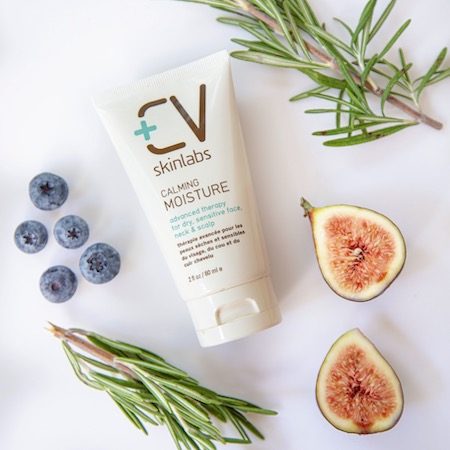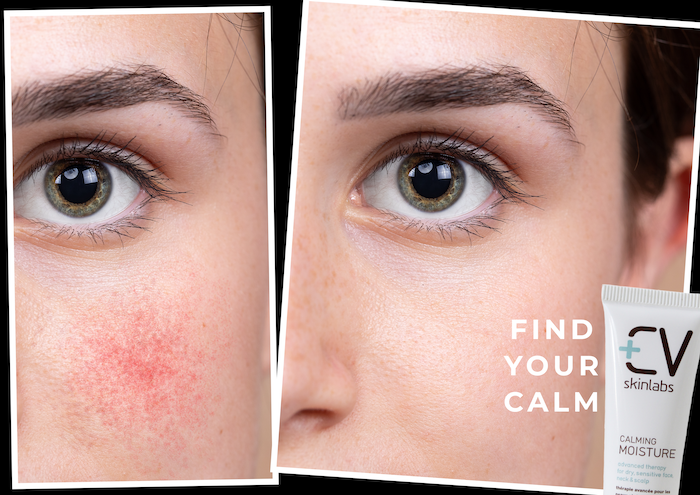It’s New Year and we encourage you to think about mental health for beautiful skin.
What does one have to do with the other? Much more than you might think!
How does mental health affect beautiful skin?
In recent years, scientists have found a strong link between skin health and psychology.
According to the American Psychology Association (APA), some dermatologists were still skeptical about this connection in 2015. But a simple blush when you’re embarrassed shows that your skin reflects your emotions and mental state at the moment.
Today, dermatologists are much more accepting of the idea that mental health can influence skin health. There is even a new area of skin care called psychodermatologywhich is the study of how mental illness can affect skin health, and vice versa.
Studies have shown that psychological stress can disrupt the skin’s outer barrier, affecting its ability to retain moisture and resist problems like eczema and psoriasis flare-ups. Psychological stress can also have a stimulating effect on inflammation in the skin, which can increase the risk of acne, redness and rosacea flare-ups.
Here at CV Skinlabs we agree! We take a holistic approach to skin care and wellness, recognizing that the health of the skin is linked to the health of the mind and body.
5 Ways Mental Health Affects Skin Health
Let’s look at the different ways your mental health can affect the health of your skin:
Hormone release
When you are stressed, your body produces stress hormones such as cortisol. These hormones can lead to increased inflammation throughout the body, including the skin. That inflammation can cause redness and acne, or worsen skin conditions such as eczema, psoriasis and rosacea.
That’s why all our formulas contain our powerful Tri-Rescue Complex, rich in antioxidants and anti-inflammatory ingredients that help soothe and soften the skin, promote healing and recovery, keep inflammation at bay and make the skin barrier strong and resilient.
Stressful behavior
In some people, stress can trigger harmful behaviors such as picking, scratching, or other repetitive actions that damage the skin’s surface and cause redness and swelling.
Increased sensitivity
Research shows that anxiety can make skin more sensitive and worsen skin conditions. Anxiety has also been linked to the development of rashes and hives and to causing flare-ups of conditions such as herpes simplex. It can also lead to dryness, cracking, flaking, dermatitis and more.
Excessive oil production
If you have oily skin to begin with, you may get more acne when you’re stressed. The extra cortisol stimulates the skin to produce even more oil. Studies have found that higher levels of stress correlate with more severe acne.
Suppressed immune function
Your skin has its own immune system, and when you’re stressed, that immune system won’t function as well as normal. When your immune system works well, it protects you against infections and diseases. But if it doesn’t work properly, inflammation, redness, allergic reactions, sensitivity and skin conditions all get worse.
Boost your mental health for beautiful skin!
On the other side of the coin, scientists have found that a calm or positive mental state has a beneficial effect on the skin.
That may be because when you feel good, your body increases levels of certain hormones linked to a good mood, such as dopamine and serotonin.
Scientists are still researching the effects, but suffice to say, when you feel clear, centered, and positive about your life, your skin will naturally look and feel better, too.
We encourage you to make your mental health a priority this year, not only because of the skin benefits, but also because of all the ways it can improve your daily life. Here are some activities that we know from research can help improve your mental outlook while reducing stress.
1. Meditate
Meditation is one of the best ways to calm a stressed brain. It teaches you to be present and notice your thoughts and feelings without judging them. Over time, this process helps you reduce anxiety, stress, and depression.
If you’re not sure where to start, try one of today’s simple guided meditation sessions online. Some good options include:
2. Move more
Scientific research has shown that regular exercise promotes better mental health. It has also been shown that athletes are better able to respond to stressful situations in a calmer and healthier way than their non-exercising counterparts.
Find a type of exercise that you enjoy and that you can do every day. Good options include taking a walk or bike ride, joining a dance or spin class, exercising with a video or video game, or joining a sports team.
3. Go outside
We spend much of our time indoors these days, but research shows that getting outside – especially to green spaces – has many positive health benefits. These include a lower risk of depression, faster recovery from stress and improved mental focus.
Try to walk outside for at least 20 minutes a day.
4. Revisit your hobbies
When was the last time you played your instrument, crocheted a blanket or made a new desk?
You may think your hobbies are an indulgence, but they have positive effects on mental health. If you do something you enjoy, simply because you enjoy it, the effects are similar to those of mediation. You will feel calmer and more focused as you release stress.
It’s so rewarding that you should mark time on your calendar to pursue your hobbies. Join a quilting club, take a painting class, go out with friends to practice your photography, or pick up your guitar and play.
5. Prioritize connection
How often do you get together with positive friends and loved ones? It may not be often enough.
Connection is one of our primary needs for optimal health and well-being. If you feel like you’ve been neglecting this part of your life, make it a priority to reconnect this year. Meet a friend for coffee, invite loved ones over for dinner, or schedule a Zoom call with someone far away.
You can also consider joining a club or volunteering so you can make new connections.
6. Start with a gratitude exercise
Studies show that training your brain to be grateful and notice your blessings regularly will benefit your overall mental health.
Reminding yourself of what you are grateful for can help you break negative thought patterns and reduce anxiety and stress. That doesn’t mean you should ignore negative feelings and experiences, but it does mean that it helps to take time every day to focus on the good things.
Perhaps the easiest way is to make a list early in the morning or late at night of the five things you are grateful for that day. Don’t forget the simple things, like a roof over your head and enough to eat!
7. Tidy up
The new year is a good time to get rid of the clutter from the year before and start over. Studies show that reducing clutter gives you new energy and helps reduce anxiety. Tidying up also helps to reduce distractions and increase your ability to concentrate.
Take a look around your work and living areas and see what you can clear out. Think twice about holding onto items that you “might” need someday. If you haven’t used them for six months or more, it’s probably time to let them go. Donate them to your local Goodwill or shelter where someone else can enjoy them.

One last tip
Finally, we recommend that you take the time for your skin care routine! Instead of rushing through it, turn it into a calming, soothing “me-time” that will help release stress and refresh your mood. Light a candle, turn on some music and enjoy your favorite mask for a truly restorative experience.
All CV Skinlabs products are formulated to be highly effective and safe to use with peace of mind. They are rigorously researched and scientifically backed to provide the very best nourishing care with targeted and clinically proven solutions, which help balance and restore skin’s health and radiance.
We hope you choose CV Skinlabs to get a healthy start with truly beautiful skin. Happy new year!
How do you prioritize mental health?
Featured image courtesy of Andrea Piacquadio via Pexels.






